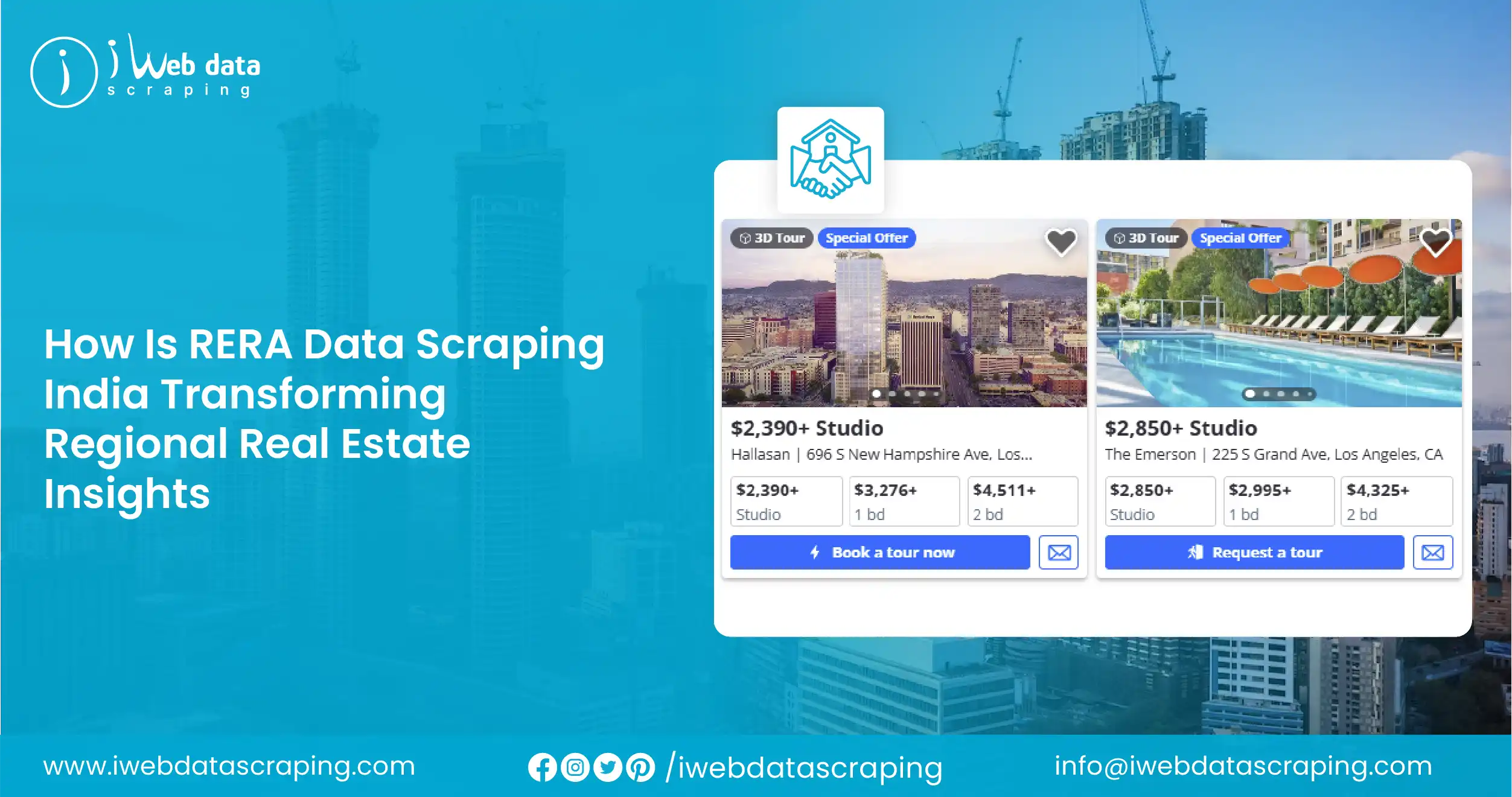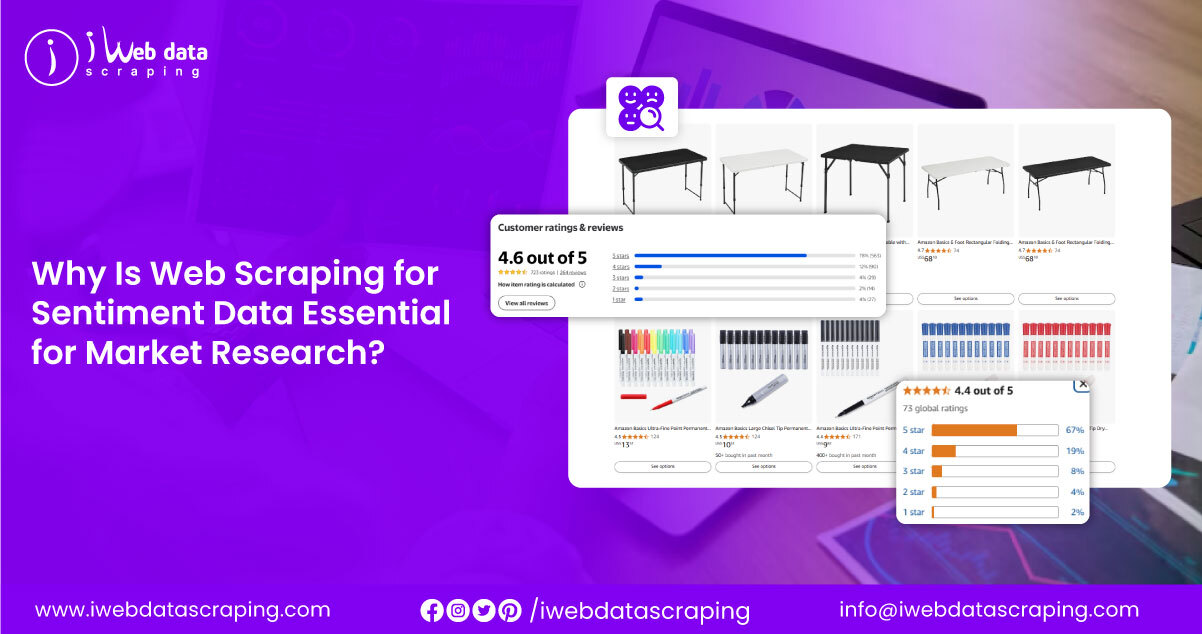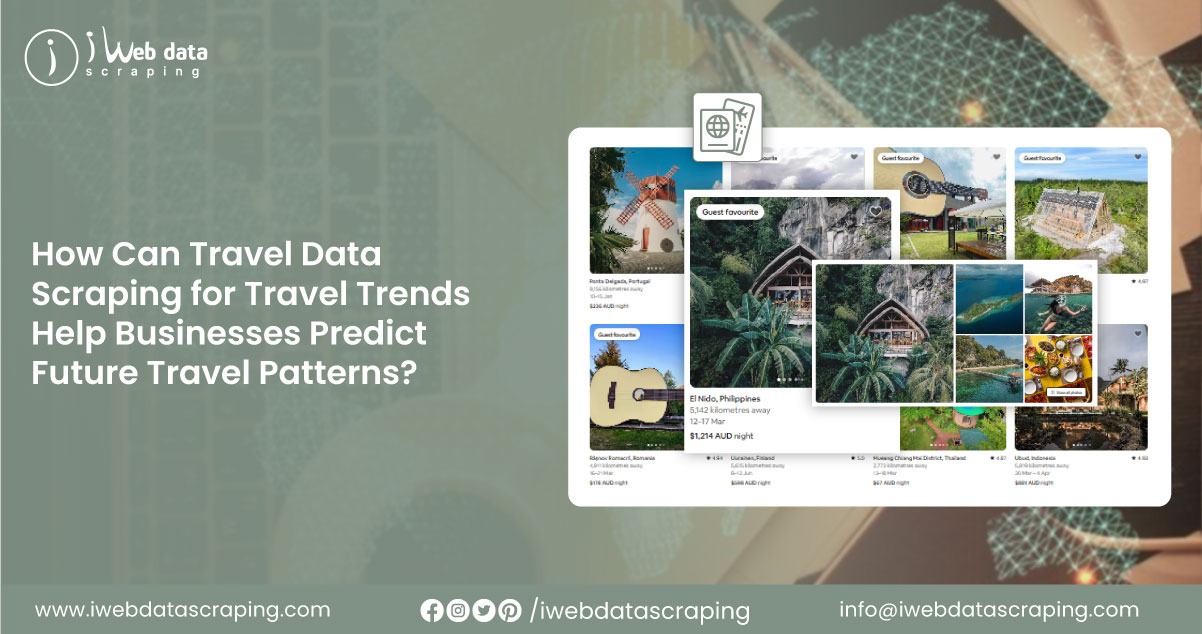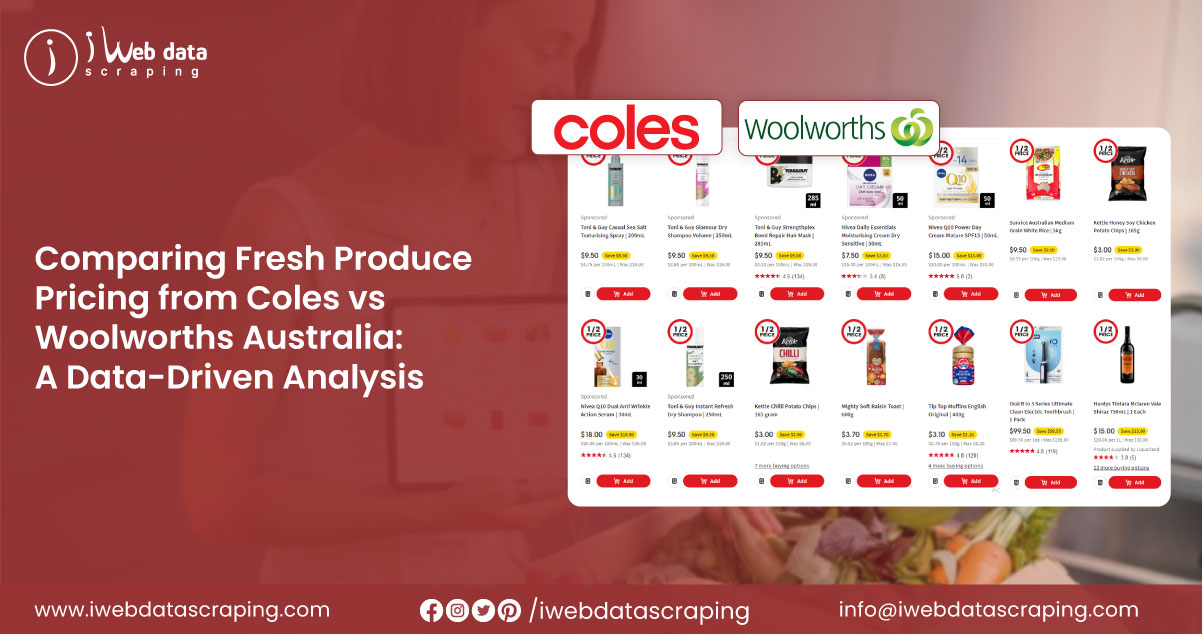Web Scraping for Real Estate Insights in Investment Opportunities
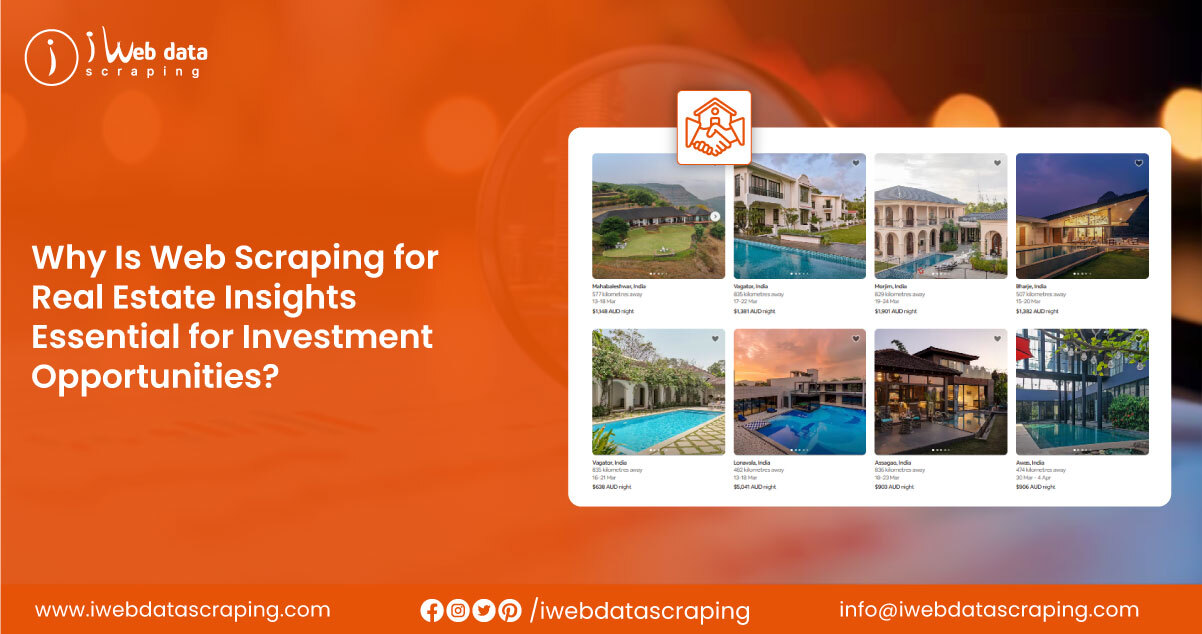
Introduction
The real estate industry relies heavily on data, from property prices and rental trends to neighborhood demographics and market demand. Buyers, sellers, and investors need accurate insights to make informed decisions. However, real estate data is dispersed across multiple listing platforms, market reports, and property websites. This is where Web Scraping for Real Estate Insights becomes essential.
By leveraging Real-Time Web Scraping for Real Estate, businesses can efficiently extract property data, analyze market trends, and gain a competitive edge. Automated data collection helps track real-time price fluctuations, rental demand, and investment opportunities. Whether monitoring competitors, evaluating emerging markets, or predicting property value changes, web scraping enables precise, data-driven strategies.
Real estate professionals can seamlessly gather and utilize vast datasets with the right scraping tools, transforming raw information into actionable intelligence. This empowers smarter decision-making and maximizes investment returns.
Understanding Web Scraping in Real Estate
Web scraping is an automated method of extracting data from websites. Real estate professionals, analysts, and investors can gather crucial market insights without manually browsing multiple platforms. Leveraging advanced web scraping techniques allows stakeholders to compile and analyze large datasets, leading to informed decision-making.
Real estate data sources include:
Property listing websites (e.g., Zillow, Realtor.com, Redfin, Trulia)
Government and tax databases
Rental platforms (e.g., Airbnb, Vrbo)
Real estate blogs and market analysis sites
Mortgage and loan rate aggregators
Key Benefits of Web Scraping for Real Estate
Web scraping revolutionizes real estate by providing valuable market insights. It enables professionals to track pricing trends, rental data, competitor strategies, and investment opportunities. By leveraging Real Estate Data Extraction, businesses gain a competitive edge through data-driven decision-making and enhanced market intelligence.
Pricing Trends Analysis: Property prices fluctuate due to various factors such as location, demand, economic conditions, and seasonal changes. Real Estate Data Extraction allows investors, sellers, and buyers to track historical and real-time pricing trends across different markets. Real estate professionals can make data-driven decisions by analyzing this data, ensuring they set competitive and profitable pricing strategies.
Rental Market Insights: Understanding rental trends is crucial for landlords, property managers, and short-term rental operators. Property Data Scraping Services help extract rental price data from platforms like Airbnb, Zillow, and Rent.com. This enables property owners to determine optimal rental rates, assess demand in specific locations, and identify high-yield investment areas for short-term and long-term rentals.
Comparative Market Analysis (CMA): A Real Estate Data Scraping Services solution automates comparing similar properties in a given area. By gathering data on property size, features, amenities, and pricing, investors and real estate professionals can conduct detailed CMAs. This enables them to evaluate a property's market worth and make well-informed purchase or listing decisions.
Identifying Investment Opportunities: Real estate investors continuously seek undervalued properties, foreclosure listings, and emerging markets with high-growth potential. With access to Real Estate Property Datasets , investors can analyze vast amounts of data to pinpoint the best opportunities for appreciation. By leveraging web scraping, they can uncover hidden gems, monitor price fluctuations, and make data-driven investment decisions.
Competitor and Market Intelligence: The real estate industry is highly competitive, requiring businesses to stay ahead of their rivals. Real Estate Data Intelligence enables agents, brokers, and developers to track competitor listings, pricing strategies, and sales tactics. By gathering insights into competitors' approaches, professionals can refine their marketing and pricing strategies, improving their competitive advantage in the market.
Tracking Neighborhood and Demographic Data: Beyond property pricing, crime rates, school rankings, public transport access, and local amenities significantly impact property values. A Real Estate Property Data Scraper can collect and analyze neighborhood and demographic data, helping buyers and investors make informed decisions on location-based investments. Understanding these factors ensures real estate professionals target high-value areas with strong long-term potential.
Mortgage and Interest Rate Monitoring: Mortgage and loan interest rates play a crucial role in decision-making for homebuyers and investors. Real Estate Property Data Scraper tools can extract loan rates from various financial institutions, helping buyers find the best financing options. By tracking real-time interest rate fluctuations, borrowers can secure cost-effective mortgages that align with their investment goals.
By leveraging web scraping technologies, real estate professionals can access and analyze vast amounts of data, gaining valuable insights into market trends, investment opportunities, and pricing strategies.
Use Cases of Real Estate Web Scraping
Real Estate Web Scraping unlocks powerful insights by extracting property data from listing platforms, market reports, and financial sources. It helps track pricing trends, analyze rental markets, monitor competitors, and identify profitable investments, empowering real estate professionals with data-driven decision-making and market intelligence.
Real Estate Agencies and Brokers: Agencies and brokers can use scraped data to generate automated property reports, understand market trends, and tailor client recommendations. It also helps them identify the most sought-after property types in specific locations.
Property Investors and Developers: Investors rely on web scraping to find new investment opportunities. Developers can assess demand for different property types and ensure they build in areas with high growth potential.
Short-Term Rental Businesses: Platforms like Airbnb and Vrbo offer valuable rental data. Web scraping these platforms helps short-term rental operators optimize pricing strategies, analyze seasonal trends, and maximize occupancy rates.
Real Estate Market Analysts: Analysts use scraped data to create comprehensive reports on property trends, economic impacts, and urban development forecasts. This helps businesses and individuals make data-backed investment choices.
Mortgage Lenders and Banks: Financial institutions use real estate web scraping to monitor property values, loan-to-value ratios, and market trends. This data helps in risk assessment and loan approvals.
Unlock real-time real estate insights with our advanced web scraping solutions—get started today!
Contact Us
Challenges and Ethical Considerations
While web scraping provides immense value, it also comes with challenges:
Anti-Scraping Measures: Many real estate websites implement anti-scraping technologies, such as CAPTCHA, IP blocking, and rate limiting. Ethical scraping techniques, including rotating proxies and delay mechanisms, should be used to overcome these.
Data Accuracy and Quality: Extracted data may sometimes be incomplete or outdated. Cross-verifying data sources and employing data-cleaning methods ensure reliability.
Legal and Ethical Considerations: Complying with website terms of service and data protection laws, such as GDPR and CCPA, is crucial. Ethical web scraping involves extracting publicly available data without violating site policies or user privacy.
Future of Web Scraping in Real Estate
With advancements in artificial intelligence (AI) and machine learning (ML), web scraping is no longer limited to data extraction—it is transforming real estate analytics. AI-powered models now analyze vast real estate property datasets to predict market trends, property values, and investment opportunities with greater accuracy.
Predictive analytics and automated valuation models (AVMs) use scraped data to estimate property values based on historical trends, location insights, and real-time market fluctuations. Investors, real estate agents, and financial institutions leverage AI-driven insights to make data-driven decisions, reducing risks and maximizing returns.
As real estate data intelligence evolves, businesses can automate property valuation, monitor rental trends, and assess market demand more efficiently. Real-time web scraping for real estate will remain a game-changer, enabling professionals to stay ahead in the competitive market. In an industry driven by data, leveraging AI-enhanced web scraping will be essential for smarter investment strategies and informed decision-making.
How iWeb Data Scraping Can Help You?
Automated Property Data Collection
We extract real-time real estate data from listing platforms, property websites, and market reports, ensuring access to up-to-date information on prices, availability, and trends.
Competitor and Market Analysis
Our real estate data scraping services help monitor competitor listings, pricing strategies, and market demand, giving businesses a competitive edge.
Rental & Pricing Trends Monitoring
We track rental rates, property price fluctuations, and emerging market trends, enabling investors and landlords to make data-driven pricing decisions.
Neighborhood & Demographic Insights
Our tools scrape data on crime rates, school rankings, local amenities, and transportation, helping buyers and investors assess the best locations.
Customized Real Estate Data Solutions
We provide tailored real estate property datasets, extracting only the specific data points needed, from mortgage rates to foreclosure listings, ensuring high-quality and relevant insights.
Conclusion
Web scraping empowers real estate professionals, investors, and analysts by providing deep market insights and competitive intelligence. From pricing trends to neighborhood analytics, the ability to extract and analyze real-time data gives a distinct advantage in the fast-evolving property market. However, ethical and legal considerations must always be prioritized to ensure responsible data collection. As the real estate industry embraces digital transformation, web scraping will remain an indispensable tool for those seeking actionable insights and strategic decision-making.
Experience top-notch web scraping service and mobile app scraping solutions with iWeb Data Scraping. Our skilled team excels in extracting various data sets, including retail store locations and beyond. Connect with us today to learn how our customized services can address your unique project needs, delivering the highest efficiency and dependability for all your data requirements.
Sourse>> https://www.iwebdatascraping.com/web-scraping-real-estate-insights-for-investment.php
Note: IndiBlogHub features both user-submitted and editorial content. We do not verify third-party contributions. Read our Disclaimer and Privacy Policyfor details.



